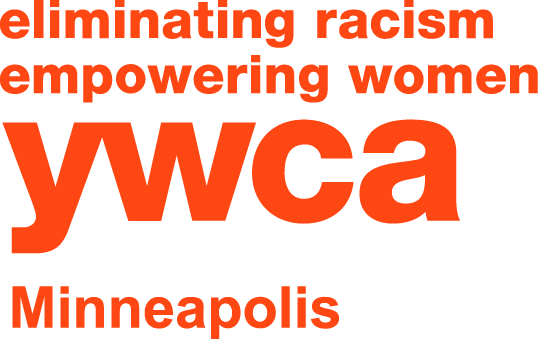An Experience of Shared Humanity at YWCA’s Distribution Center
July 8, 2020
The murder of George Floyd launched a thousand protests across the world in his name. Here in Minneapolis, it transformed our community. The Black Lives Matter movement has brought hope that change is possible, that police violence isn’t inevitable and that justice is achievable.
Losing Access to Groceries and Supplies
In the aftermath of protests, almost all businesses along Lake Street were burned, looted or damaged; ones that were still standing were boarded up and many remain closed. Target, Cub Foods and Aldi closed and suddenly, many in the neighborhood lost access to groceries and essential supplies.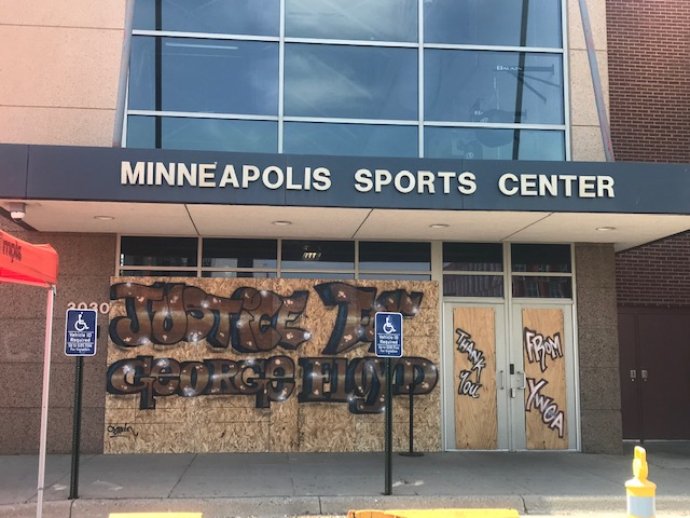
A Fixture in the Community for 20 Years
For 20 years, our YWCA Midtown location on Lake Street has served as a fixture in our community. But with our fitness centers closed due to COVID-19 at the time, our building was mostly empty. The decision to open it up to serve the community came out of an acknowledgment that we have this resource, the largest sports center in the Twin Cities, that would allow us to distribute food and items safely during the pandemic.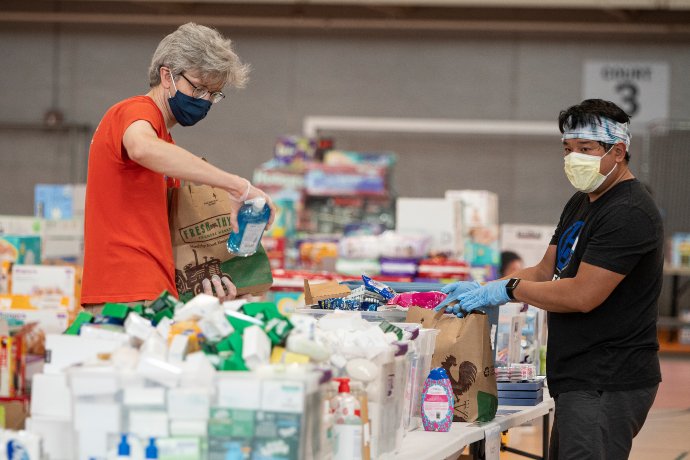
Distributing Food Within 48 Hours
A cross-department planning team was put together and we found a food partner, The Sheridan Story, that contributed food kits. Within 24 hours of that decision, we were taking donations. Within 48 hours, we were giving out food and supplies at our pop-up distribution center.
“When we first began, we set up one small table and stacked the items we had on top. We laugh at that now, because it’s turned into aisles and aisles. We brought in so many tables, it looks like a store. The way people showed up to drop off donations was beyond our expectations,” says Katie Rehani, YWCA Girls and Youth program director.
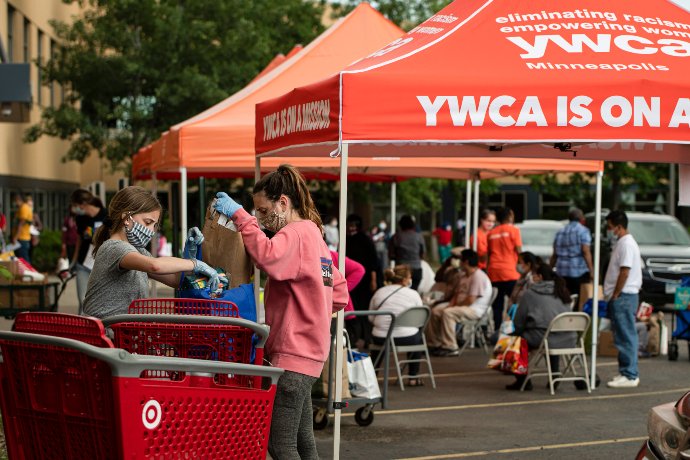
Invaluable Partners to Help Us Get Started and Sustain It
The partnerships we developed have been incredibly valuable. Target consulted to give us logistics support to maintain the safety of volunteers, employees and community members. They offered tips on traffic flow for cars and walk-up lines and how to set up tables to lower COVID-19 risks among volunteers. Partners like General Mills and Best Buy have come through with fiscal support and in-kind supply donations that continue to be vital.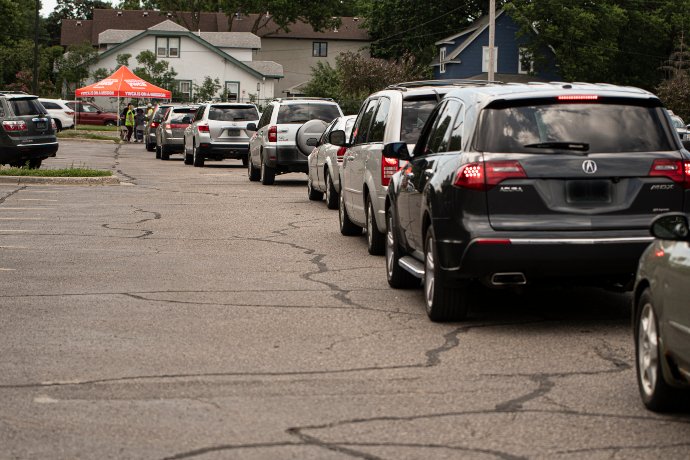
Long Lines and Immense Need
As we opened our doors, we saw quickly how immense the need was. Within days, long lines formed outside of YWCA Midtown. Rehani told the story of one woman who worked all night and showed up at 6:30 am to wait for our doors to open at 11:00 am – all so that she could get a food kit, water, a hygiene kit, household supplies and paper products.
“No one wants to sit for five hours for a free toothbrush,” said Rehani. “We can see the impact of what it means to be a minimum-wage worker in Minneapolis. You have to spend all your time and energy doing these other draining things to provide for your family.”
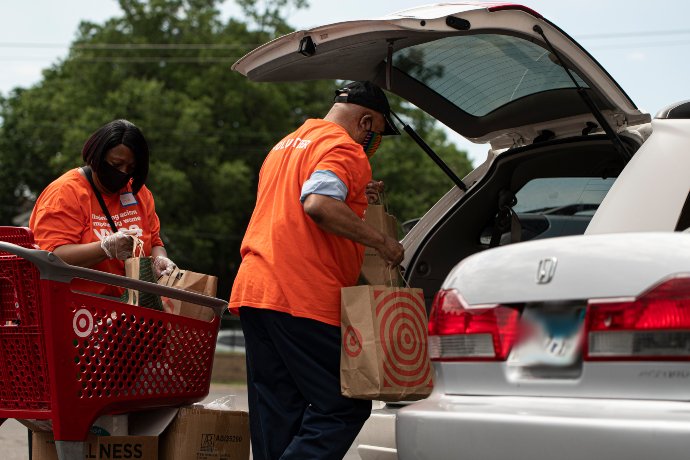
A Sharper Focus on Inequities that Always Existed
The crises of COVID-19 and police violence has put into sharper focus the inequities that have always existed. Pastor Ingrid Rasmussen, who organized a similar food distribution setup at Holy Trinity Lutheran Church a half-mile from YWCA Midtown said she is noticing similar trends:
“We certainly are seeing, in the food distribution itself, higher numbers of communities of color and new immigrant communities than I might have initially anticipated,” Rasmussen said. “What we have seen unfold since the murder of George Floyd are symptoms of a society that has privileged some at the expense of others.”
It’s why community leaders and protesters who were rallying against the murder of George Floyd were also chanting for livable wage jobs. The safest communities are not ones with the most police presence, but the ones with the most resources, with affordable housing and opportunities for earning a livable wage.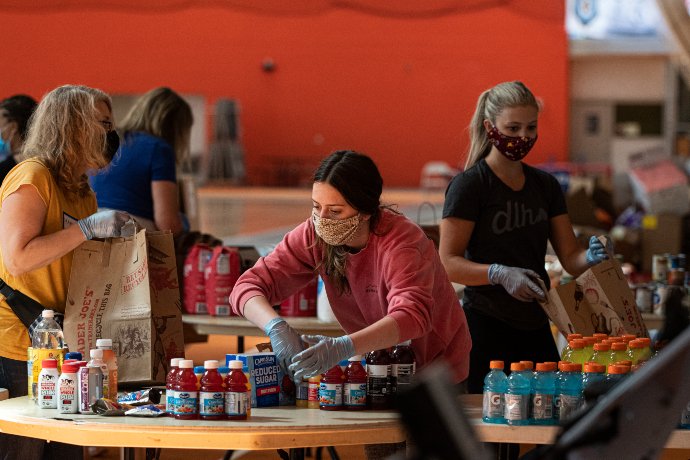
Distributing More Than 17,000 Meal Kits
Since the distribution center first opened in early June, we have given out about 17,000 meal kits. We’ve received generous donations from hundreds of individuals, community groups and businesses across Minneapolis and beyond. Community members filled over 1,700 volunteer shifts, helping us to inventory supplies, compile kits and organize the distribution.
A Meaningful Way to Contribute During Crisis
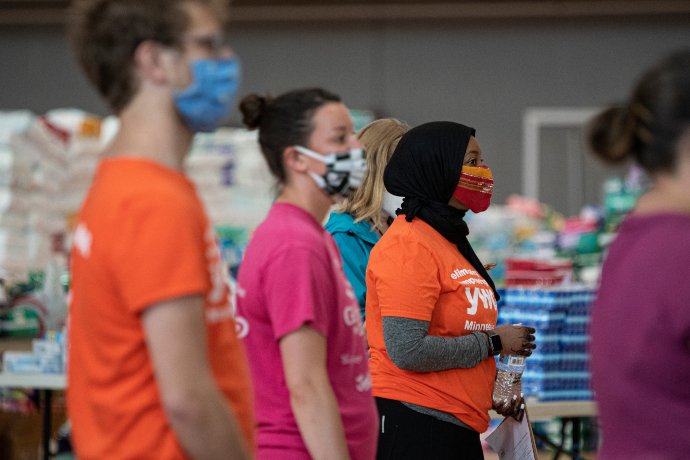 The distribution center has been a meaningful way to contribute for many during this time of crisis in our neighborhoods. One dedicated volunteer, Raymond Luna, said volunteering was eye-opening:
The distribution center has been a meaningful way to contribute for many during this time of crisis in our neighborhoods. One dedicated volunteer, Raymond Luna, said volunteering was eye-opening:
“The experience has been one of realization and appreciation – to realize how much disparity we have in our own backyards. I’ve really appreciated experiencing the human nature of volunteers and people who need help and services.”
Another volunteer, Suzanne Anderson said, “Along with the undeniable oppression that recent events have brought into sharp focus, my faith in humanity is renewed by both the giving and the receiving happening through this work.”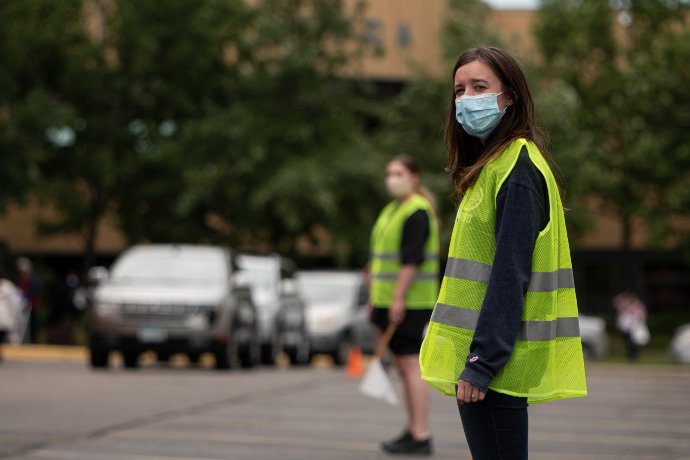
A Need for Long-Term Systems Change
The distribution center has been one important way YWCA Minneapolis has responded to this moment, but we acknowledge the need for long-term systems change, too. We are in the process of developing new initiatives and partnerships to address this need. And as always, we are providing resources for community members to learn more about racism, white privilege and fighting disparities through civic engagement.“Someone getting toilet paper today didn’t change their long-term outcome,” says Rehani. "But, we can help provide what people need today while fighting for systemic change for tomorrow."
Ways to Help
There is still an urgent need for supplies and we need your help! Please consider contributing so that we can continue our much-needed racial justice work while providing life-changing access to essential supplies.Donate SuppliesDonate to the Emergency FundSign Up to Volunteer
